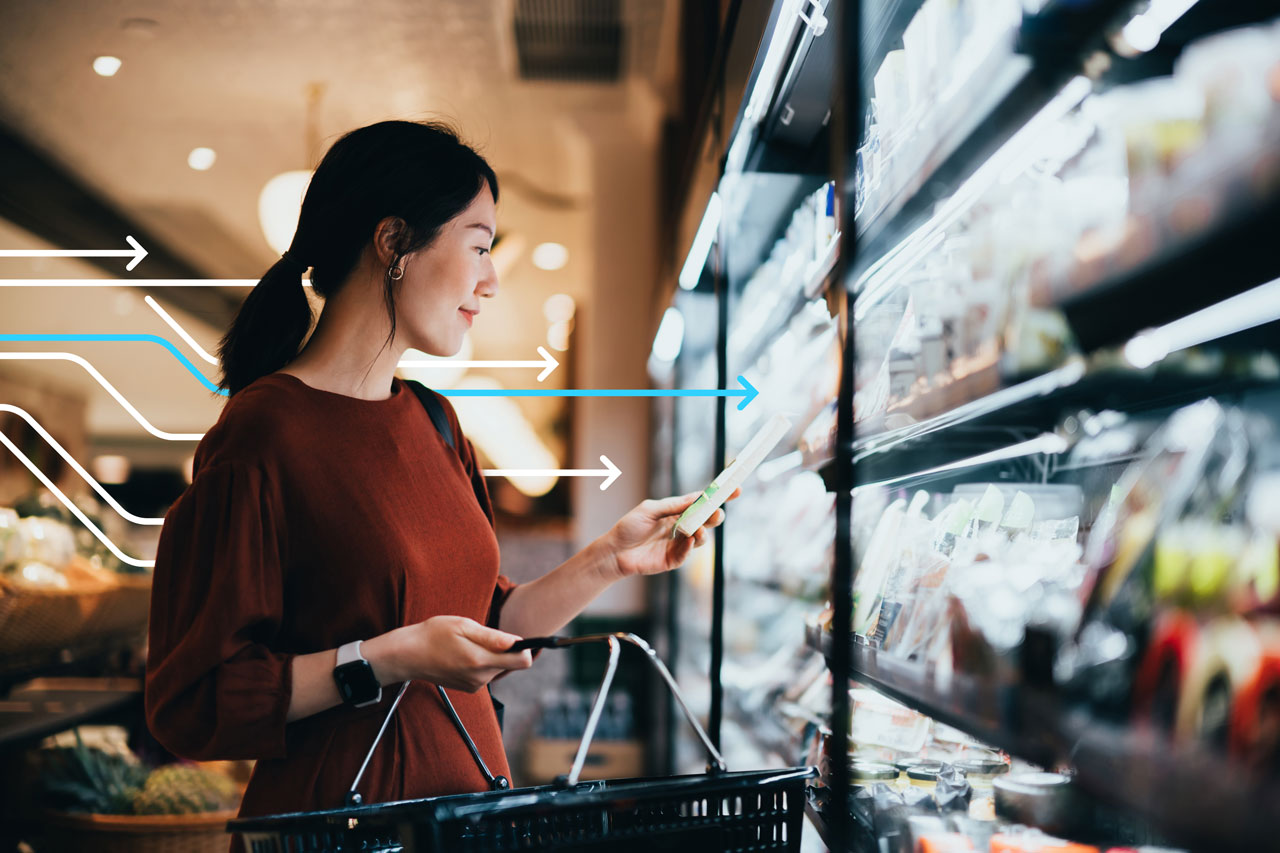

Consumer Behavior Change
Exploring Meaning, Value, and Types of Consumer Behavior Change
Definition
Consumer behavior change encompasses the evolving preferences, purchasing habits, and decision-making processes of consumers, influenced by a myriad of factors including technological advancements, societal trends, economic conditions, and personal experiences.
This shift in behavior is critical for businesses to understand as it directly impacts how products and services should be marketed and sold. At its core, consumer behavior change reflects the dynamic nature of human needs and desires in response to the changing world around them.
Understanding these changes is not just about observing what consumers are doing differently, but also why they are doing it, and how these changes affect their overall consumption patterns. This understanding is crucial for businesses aiming to stay relevant and competitive in a fast-paced market environment. By analyzing consumer behavior, companies can tailor their strategies to meet evolving consumer demands, thereby enhancing customer satisfaction and loyalty.
The analysis of consumer behavior change involves a comprehensive look at various factors such as demographic shifts, changes in consumer attitudes and expectations, the impact of digital technology on shopping habits, and the influence of social media on purchasing decisions. Additionally, it considers the psychological underpinnings of consumer choices, including how values, beliefs, and personal identity shape buying behavior.
This holistic approach enables businesses to anticipate market trends and adapt their offerings accordingly, ensuring they resonate with their target audience and meet their needs in a meaningful way.

Consumer Behavior & Insights
Understand consumer and shopper behavior, demographics, and loyalty with NielsenIQs solutions: modern, representative consumer panels and customer survey capabilities.
How Can Expectations About the Future Change Consumer Behavior?
Expectations about the future significantly influence consumer behavior, shaping how individuals make decisions about spending, saving, and investing.
These expectations can be driven by a variety of factors, including economic forecasts, technological advancements, environmental concerns, and societal trends.
For example, the anticipation of economic growth may encourage consumers to spend more freely, investing in big-ticket items and luxury goods. Conversely, fears of a recession can lead to more conservative spending behaviors, with a greater focus on saving and purchasing necessities.
Technological expectations also play a crucial role, as the promise of new innovations can lead consumers to delay purchases in anticipation of newer, better products.
Similarly, growing concerns about environmental sustainability are prompting more consumers to favor eco-friendly products and brands that demonstrate a commitment to reducing their environmental impact.
These shifts in consumer behavior underscore the importance of businesses staying attuned to their customers’ future expectations. By understanding and anticipating these changes, companies can develop strategies that align with consumer values and priorities, thereby building stronger relationships with their audience. This involves not only tracking economic and technological trends but also engaging with consumers to understand their concerns, aspirations, and what they envision for their future. Through this deep understanding, businesses can tailor their marketing efforts, product development, and customer experiences to meet the evolving needs of their market, ensuring long-term success and sustainability.
In Which Way Did Covid Affect Consumer Behavior?
The Covid-19 pandemic has profoundly affected consumer behavior, leading to significant shifts across various industries including technology and durables, retail, FMCG, and e-commerce. One of the most notable changes has been the accelerated shift towards online shopping, as consumers sought to minimize physical contact and adhere to social distancing guidelines.
This shift has not only increased e-commerce sales but also prompted traditional retailers to enhance their online presence and digital offerings. In addition to the rise of online shopping, the pandemic has also altered consumer priorities, with a heightened focus on health and safety. Products such as sanitizers, masks, and health supplements have seen a surge in demand, reflecting consumers’ increased health consciousness. Furthermore, the pandemic has led to changes in spending patterns, with consumers becoming more cautious and value-oriented, prioritizing essential goods and services over luxury items and discretionary spending.
The impact of Covid-19 on consumer behavior also extends to the adoption of new technologies and digital services. With the closure of physical stores and restrictions on movement, consumers have increasingly turned to digital platforms for entertainment, fitness, and social interaction, leading to a boom in the digital economy. These changes highlight the need for businesses to remain flexible and responsive to consumer needs, emphasizing the importance of digital transformation and the ability to quickly adapt to changing market conditions. By understanding and responding to these behavioral shifts, companies can better position themselves to meet the evolving needs of their consumers, ensuring resilience and continued growth in the post-pandemic landscape.
Enhance Your Strategy with Strategic Analytics & Insights
For a holistic approach to understanding and leveraging consumer behavior, explore our Strategic Analytics & Insights solutions. Our expertise empowers businesses to transform data into actionable strategies, driving growth and innovation.

Conclusion
Personal experiences, especially those influenced by significant global events like the Covid-19 pandemic, have a lasting impact on consumer behavior. These experiences can fundamentally alter consumer values, leading to shifts in purchasing priorities and brand loyalties. NielsenIQ (NIQ) is positioned to help businesses navigate these changes through their comprehensive consumer panel data and advanced analytics. By leveraging our solutions, companies can gain deep insights into consumer behavior trends.
These insights enable businesses to make informed strategic decisions, tailor their offerings to meet changing consumer needs, and ultimately drive growth in a rapidly evolving market. In conclusion, the ability to understand and adapt to consumer behavior changes is crucial for businesses looking to thrive in today’s dynamic market environment.
With the expertise and tools provided by NIQ, companies can effectively respond to these changes, creating products and services that resonate with consumers and foster long-term loyalty.
Explore our range of solutions to harness the full potential of consumer behavior change:
- NielsenIQ’s Homescan: Track, diagnose, and analyze consumer behavior from more than 250,000 households across 25 countries.
- NielsenIQ’s Omnishopper: Capture consumer purchases across online and offline channels for a complete view of changing omnichannel behaviors.
- Consumer analytics: Go deeper and create more clarity around shopper behavior with custom surveys and segmentation.
- Consumption moments: Reveal the true motivations behind customer consumption behavior and usage to guide product innovation and marketing strategy.
- gfknewron Market: Point of sales data supercharged in a digital platform with visualization, always-on insights, alerts, and search to know what sold, where, and when.
- gfknewron Predict: AI-powered market, brand and consumer intelligence and recommendations that put you in front of the rest.
- gfknewron Consumer: Understand your consumers’ behavior to redefine your success
- gfknewron Consumer Audience Profiler: Simplify the complex consumer journey into a single framework to know your buyers better than ever before
- GfK Consumer Life: A robust and stable international consumer segmentation study based on values, lifestyle, buying behavior and affinity for tech. Can be customized by market and product.


